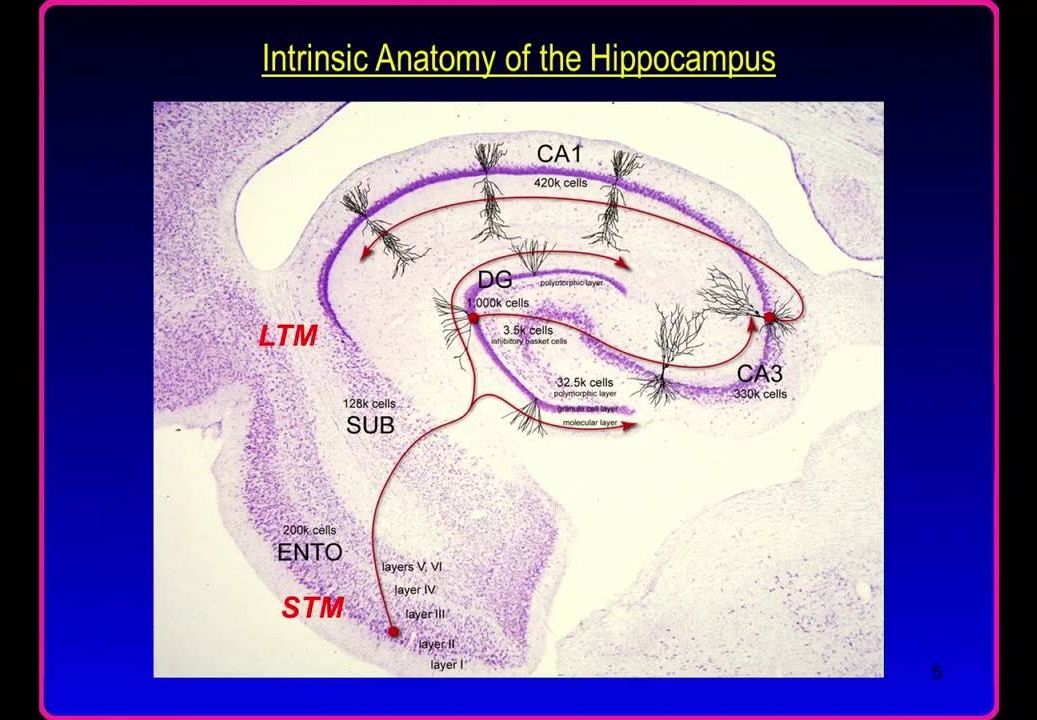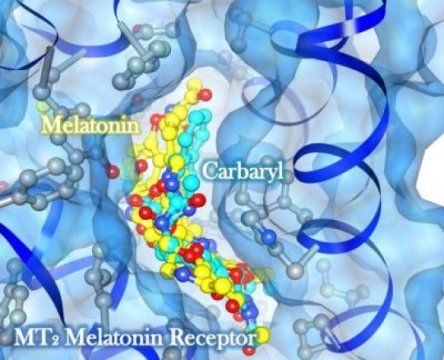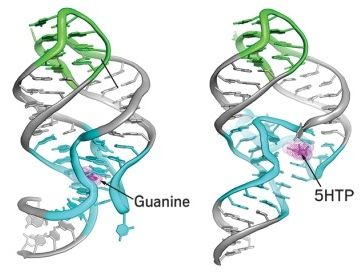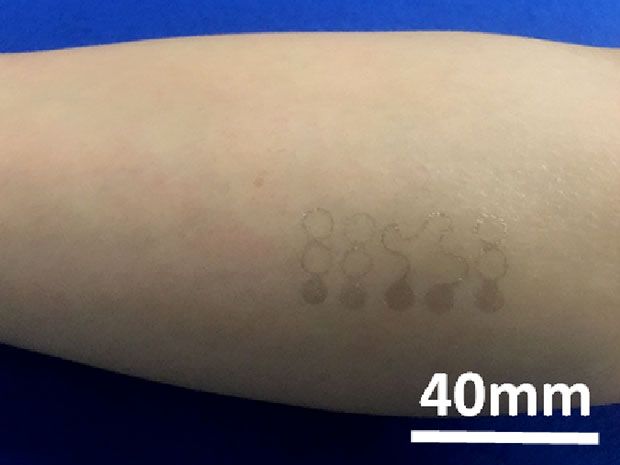Page 10535
Jan 20, 2017
Elon Musk: Moving Toward Universal Basic Income Due To Automation
Posted by Shailesh Prasad in categories: economics, Elon Musk, robotics/AI

Tesla and SpaceX founder Elon Musk told CNBC on Friday that economies would most likely need a form of ‘universal basic income’ as more and more industries become automated.
» Subscribe to CNBC: http://cnb.cx/SubscribeCNBC
About CNBC: From ‘Wall Street’ to ‘Main Street’ to award winning original documentaries and Reality TV series, CNBC has you covered. Experience special sneak peeks of your favorite shows, exclusive video and more.
Continue reading “Elon Musk: Moving Toward Universal Basic Income Due To Automation” »
Jan 20, 2017
The Best Universal Basic Income Videos of 2016
Posted by Shailesh Prasad in categories: economics, geopolitics
2017 is already shaping up to be a big year for the concept of Universal Basic Income (UBI). The idea to build an unconditional income floor to cover the basic needs of each citizen has been gaining worldwide attention and traction. In just the first 10 days of 2017, Finland has already launched a trial, a nonprofit in India is preparing to launch their own, Scotland is seriously considering trials, and several South Korean presidential candidates are now calling for support for UBI.
But before we turn our focus to the latest happenings, I want to look back and highlight some of the best videos of 2016 that explained and advocated for Universal Basic Income.
Jan 20, 2017
A New Device Could Make Memory Implants a Reality
Posted by Klaus Baldauf in categories: biological, health, mathematics, neuroscience

In Brief
- By mimicking the way neurons fire in the hippocampus during natural memory creation, a brain implant was used to successfully plant memories in the brains of rats.
- Though human implementation is far off, this breakthrough in cracking the hippocampus’ mathematical “memory code” has very important implications for health and research.
Memories are the faintest, most ethereal wisps of our neurophysiology — somehow, the firing of delicate synapses and the activation of neurons combine to produce the things we remember. The sum of our memories make us who we are; they are us, in every way, and without them we cease to be.
Continue reading “A New Device Could Make Memory Implants a Reality” »
Jan 20, 2017
Insecticides mimic melatonin, creating higher risk for diabetes
Posted by Karen Hurst in categories: biotech/medical, computing, health, information science
Synthetic chemicals commonly found in insecticides and garden products bind to the receptors that govern our biological clocks, University at Buffalo researchers have found. The research suggests that exposure to these insecticides adversely affects melatonin receptor signaling, creating a higher risk for metabolic diseases such as diabetes.
Published online on Dec. 27 in Chemical Research in Toxicology, the research combined a big data approach, using computer modeling on millions of chemicals, with standard wet-laboratory experiments. It was funded by a grant from the National Institute of Environmental Health Sciences, part of the National Institutes of Health.
Disruptions in human circadian rhythms are known to put people at higher risk for diabetes and other metabolic diseases but the mechanism involved is not well-understood.
Jan 20, 2017
Sensors Promise Spectral Analysis in the Palm of Your Hand
Posted by Karen Hurst in categories: electronics, food
Austria’s Ams has released a pair of tiny spectral sensors for on-the-go analysis of foods or pharmaceuticals.
Jan 20, 2017
The U.S. Air Force is beefing-up cyber security for the F-22 and F-35 jet fighter aircraft
Posted by Karen Hurst in categories: cybercrime/malcode, military
WASHINGTON – The U.S. Air Force is working closely with industry partners to strengthen cyber security for larger service platforms such as an F-22 or F-35 fighters. Business Insider reports.
Jan 20, 2017
Canadian army investigates mysterious Arctic noise
Posted by Karen Hurst in category: military
A strange beeping noise in the Arctic has Canadians puzzled. Is it marine mammals doing something weird? A foreign submarine? Collective hallucination?
A military patrol and acoustic specialists are being dispatched to investigate, the army said Thursday.
Speculation has abounded since Inuit hunters in the village of Igloolik heard the beep several times off the Fury and Hecla Straight late last year.
Continue reading “Canadian army investigates mysterious Arctic noise” »
Jan 20, 2017
Making aptamers with biology’s help
Posted by Karen Hurst in categories: biological, engineering, evolution
Scientists simulate evolution in the lab by introducing mutations iteratively into biomolecules such as nucleic acids and selecting for desired properties. When carrying this process out specifically on RNA molecules, they can evolve the RNAs to bind specific small molecules. But many of these so-called aptamers don’t bind well to their targets when put inside cells because they don’t fold into stable structures.
“As we solved the structures of naturally occurring aptamers, we noticed they had much more complex secondary and tertiary structures” than versions made in the lab, says Robert T. Batey of the University of Colorado, Boulder. “So we decided to use these naturally occurring RNA folds as starting points” for producing more stable artificial aptamers.
To prove their concept, Batey and coworkers used RNA sequences from naturally occurring ribozymes and riboswitches as scaffolds to evolve aptamers that bind amino acids and other small molecules used to make neurotransmitters (Nat. Chem. Biol. 2017, DOI: 10.1038/nchembio.2278). The resulting aptamers are selective for these precursor molecules over structurally similar amino acids and the neurotransmitters themselves.
Jan 20, 2017
Thinnest-ever electronic tattoos are capable of precision health monitoring
Posted by Karen Hurst in categories: biotech/medical, computing, health, mobile phones, wearables
The graphene temporary tattoo seen here is the thinnest epidermal electronic device ever and according to the University of Texas at Austin researchers who developed it, the device can take some medical measurements as accurately as bulky wearable sensors like EKG monitors. From IEEE Spectrum:
Graphene’s conformity to the skin might be what enables the high-quality measurements. Air gaps between the skin and the relatively large, rigid electrodes used in conventional medical devices degrade these instruments’ signal quality. Newer sensors that stick to the skin and stretch and wrinkle with it have fewer airgaps, but because they’re still a few micrometers thick, and use gold electrodes hundreds of nanometers thick, they can lose contact with the skin when it wrinkles. The graphene in the Texas researchers’ device is 0.3-nm thick. Most of the tattoo’s bulk comes from the 463-nm-thick polymer support.
The next step is to add an antenna to the design so that signals can be beamed off the device to a phone or computer, says (electrical engineer Deji) Akinwande.
Continue reading “Thinnest-ever electronic tattoos are capable of precision health monitoring” »
















